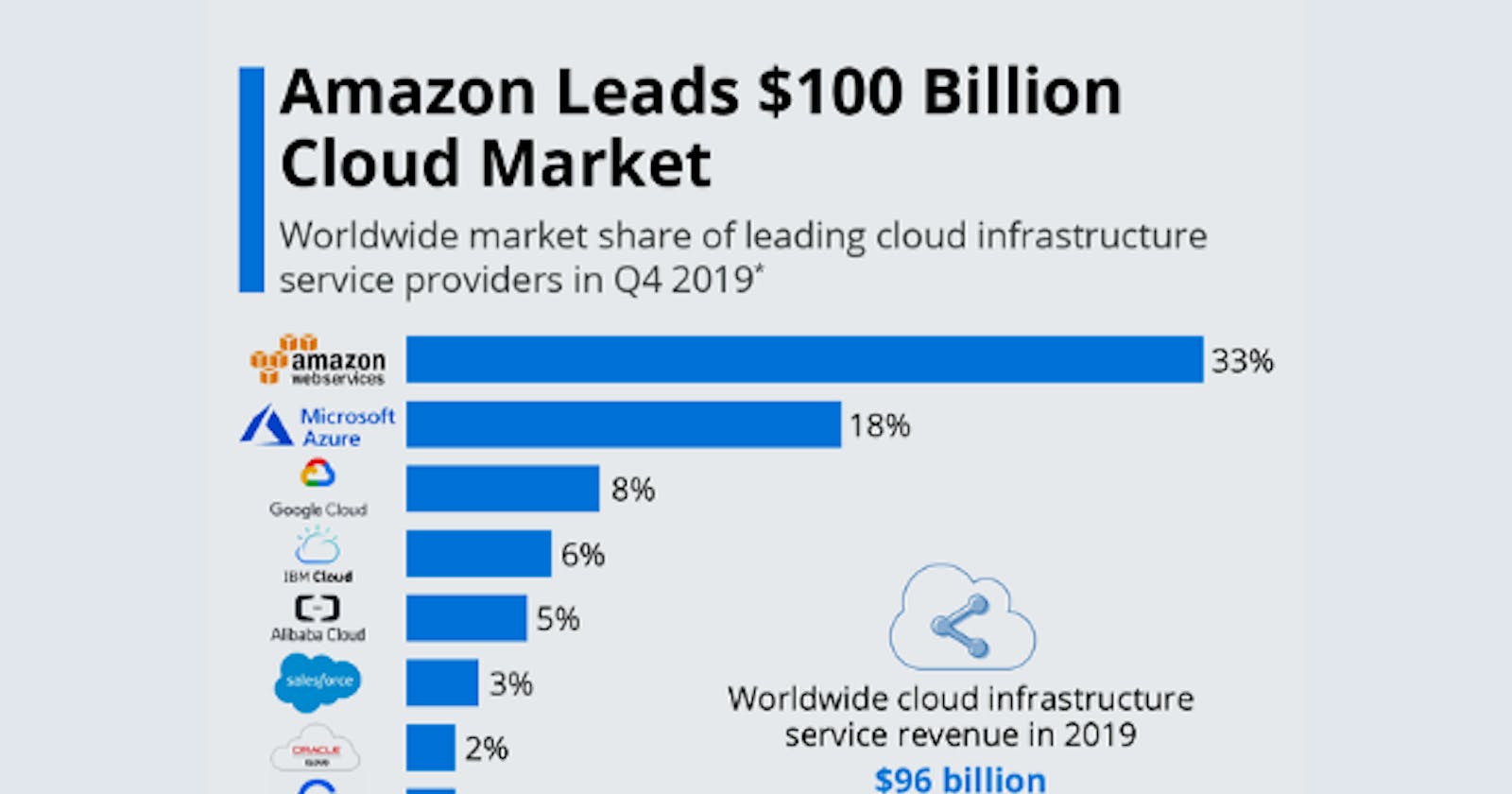Yes because of the services it provides, it's no wonder that AWS continues to dominate the cloud computing market. To maintain their position as the market leader in cloud services, Amazon must be as quick and imaginative with artificial intelligence platforms as they were in their early years.
The cloud computing sector is expanding, providing enormous potential for businesses looking to establish themselves as cloud computing leaders. The IDC predicts the cloud industry to more than quadruple in three years, to $195 billion by 2020, according to Tech Crunch.
Amazon Web Services is one of the top leaders in the cloud sector (AWS). According to Canalys, AWS has a 33.8 percent global market share, while its closest competitors—Microsoft, Google, and IBM—have a combined market share of 30.8 percent. Oracle and Alibaba Cloud are two minor competitors.
According to ZDNet, AWS' operating income in 2016 was $3.11 billion on revenue of $12.22 billion, with an annual operating profit of more than 25%. "While Microsoft, Google, IBM, Alibaba, and Oracle all achieved far better Q1 growth rates than AWS, AWS revenues are still comfortably larger than the other five combined," according to Synergy Research Group. "Why does AWS still strongly dominate the cloud market niche?" is the question to ponder.
Get a head start Amazon began as Merchant.com, an e-commerce startup that helped third-party merchants create online purchasing sites. Amazon, on the other hand, struggled to create an organized atmosphere in which to differentiate diverse services. AWS was utilized by developers to test and create interesting apps.
The notion of a "virtuous cycle" inspired the creation of AWS. Getting customers, expanding the number of clients, and adding more servers and features all start the virtuous cycle. Customers benefit from lower rates and AWS attracts more customers as it adds more servers and functionalities.
"AWS was effectively the first to debut," according to John Dinsdale, principal analyst at Synergy Research Group, and "made the market their own" before other major corporations followed suit. Despite the fact that firms like Microsoft and Google experimented with cloud technology, they considered it as a fad and failed to put their resources into projects.
Price decreases Because of its regular price cuts, AWS continues to be the market leader in the cloud business. "AWS has slashed costs over 50 times since its introduction in 2006," according to MarketWatch, and SunTrust Robinson Humphrey analyst Kunal Madhukar said he "wouldn't be surprised if further price reductions were due soon, following recent pricing drops for Microsoft's Azure."
New infrastructure and technological advancements Do you recall how AWS got started in 2006? It began as a platform for developers to build and test new apps. The success of the virtuous cycle customer base was then demonstrated. AWS has over a million users, including well-known brands like Netflix and Airbnb. AWS has a greater understanding of how customers use cloud services than nearly any other vendor, thanks to its large client base. As a result, AWS stays on top of developing new infrastructures and innovations to satisfy its customers' needs, as well as providing global support for AWS.
Scalable solutions that are quick and simple Customers can benefit from AWS's quick and simple scalability. AWS has the following advantages, according to thenextweb.com:
- A broad range of clients
- Several strategic adoption solutions, such as native cloud applications and e-business hosting, are available.
- Software providers who combine their solutions with AWS make up a large tech partner ecosystem.
- A large network of partners who offer app development skills, managed services, and professional services like data center transfer.
- IaaS and PaaS services come in a variety of flavors.
- Expansion of higher-level services and service offerings at a rapid pace.
